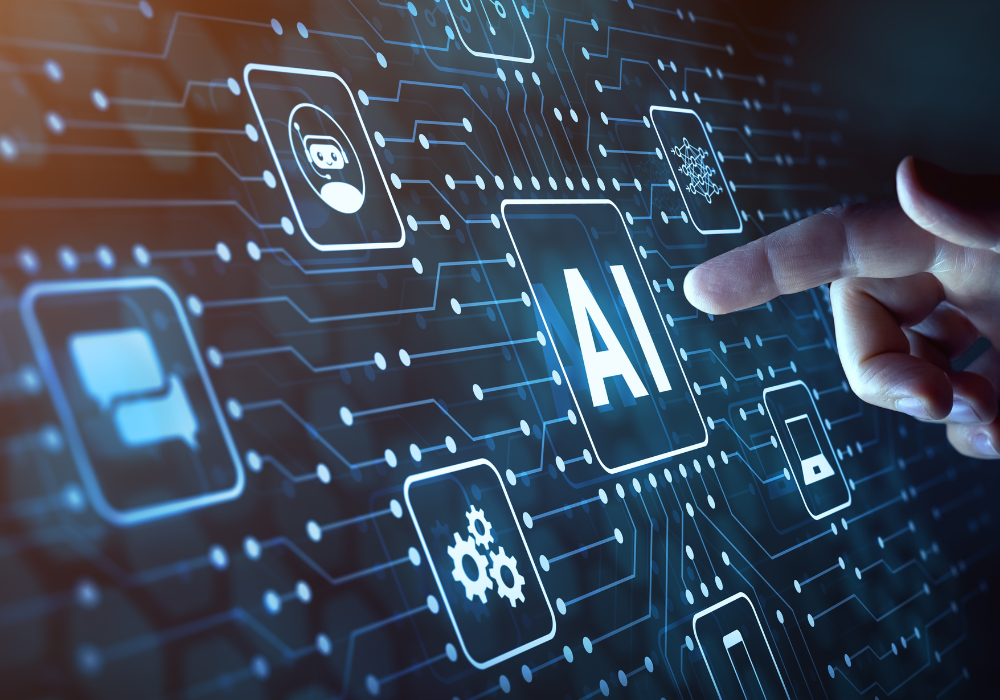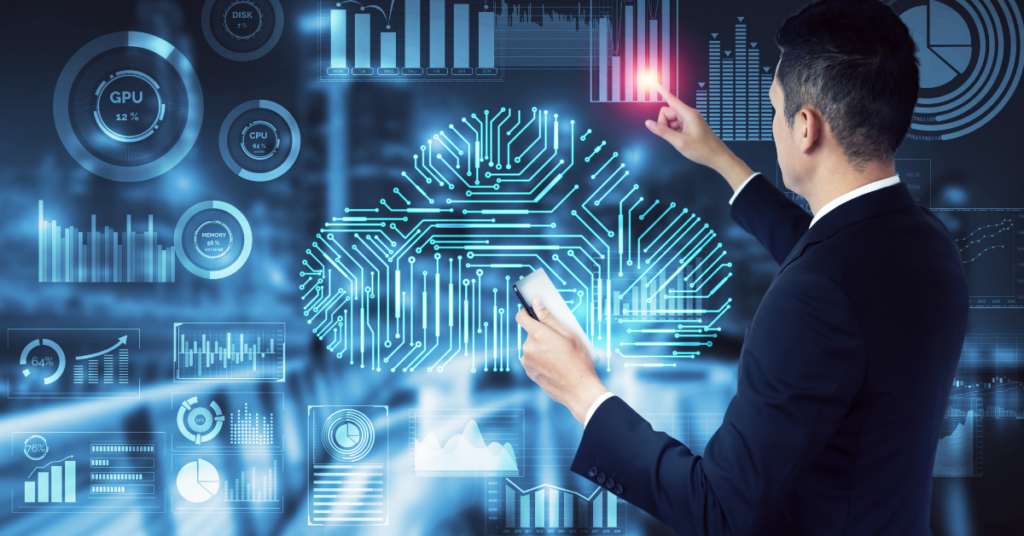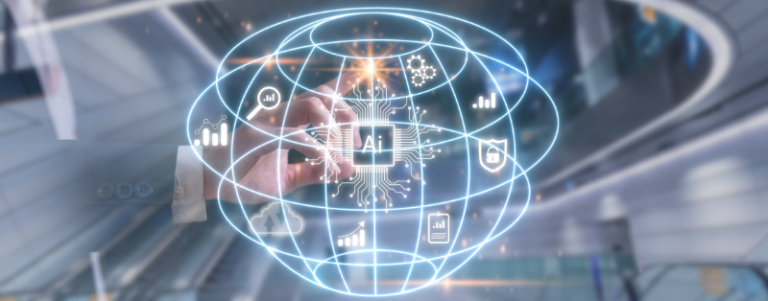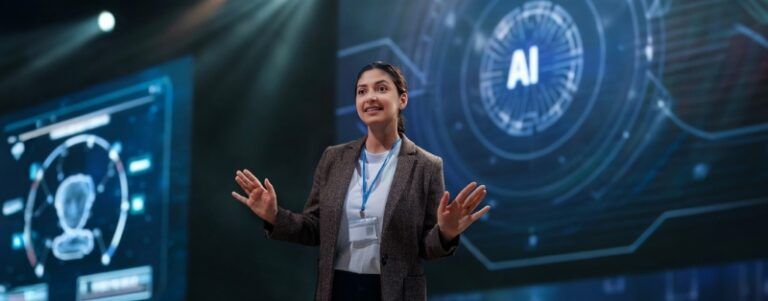Top 5 Real-World Applications of an Expert System in AI

“You are an expert in XYZ; explain its advanced concepts.” This is an example of an “act as an expert” prompt commonly used in ChatGPT. In essence, the AI language model ChatGPT acts as an expert on the particular subject matter and responds similarly to a human expert. However, ChatGPT was originally built as a generative AI model and cannot solve complex problems compared to an authentic expert system in AI. Let’s, therefore, understand what an expert system in AI is and how it functions.
What is an Expert System in AI?
 Expert systems in AI are computer programs that perform decision-making activities like human experts. Data scientists or professionals use an expert system in AI to solve complex challenges by interpreting the knowledge stored in its knowledge base. Simply put, an expert system in AI simulates the behavior of a human expert to provide solutions.
Expert systems in AI are computer programs that perform decision-making activities like human experts. Data scientists or professionals use an expert system in AI to solve complex challenges by interpreting the knowledge stored in its knowledge base. Simply put, an expert system in AI simulates the behavior of a human expert to provide solutions.
Types of Expert Systems in AI
1. Rules-Based System
First up is the rules-based system. It operates based on predefined rules. Therefore, it analyzes queries based on certain rules provided by human experts and provides solutions accordingly.
2. Fuzzy Logic Expert System
This expert system in AI works on fuzzy logic, which is similar to human reasoning. It works on the premise that humans don’t always provide answers in “yes” or “no” and think of multiple options. Similarly, fuzzy logic systems also provide various possibilities. Product recommendations are one of the best use cases of fuzzy logic expert systems.
3. Knowledge-Based Expert System
Last but not least, we have a knowledge-based expert system. It provides solutions or helps with problem-solving in specific healthcare or education domains.
ALSO READ: Make Way for AI: Top 10 Applications That are Reshaping Industries
AI and ML Courses
How are Expert Systems Applied in Real-World Scenarios?
1. Cancer Decision Support Tool (CaDet)
Expert AI systems are widely used in the medical and healthcare sector. They analyze the clinical attributes of patients and help in the early diagnosis of diseases like cancer.
2. Intelligent Tutoring System (ITS)
This system helps organizations offer customized and immersive learning experiences to students. It uses adaptation techniques to provide personalized answers to students based on their learning capability.
3. Rules-Based Expert System in Agriculture
Lastly, using an expert system in AI is also transforming agricultural practices. It uses “if-then” rules and facts to find solutions. For instance, it diagnoses the different types of pests that can damage various crops.
What are the Components of an Expert System?
1. Knowledge Base
An expert system in AI works on an if-then rule. For example, if condition 1 is satisfied, the system will give a specific answer. However, if condition 2 is also satisfied, the system will generate a different answer. Human experts provide input or information stored in the knowledge base. It comprises a knowledge acquisition module that gathers and stores knowledge from various sources in a central repository.
2. Inference Engine
This search engine follows a rules-based system and makes logical deductions. It thus acts as a central processing unit of the expert system which makes decisions according to the facts and the rules stored in the knowledge base. Simply put, it obtains knowledge from the knowledge base and manipulates it to find a suitable solution based on the user’s input.
3. User Interfaces
Also called communication systems, user interfaces enable the users to interact with an expert system in AI. Its role is to accept user queries or commands, convert them into a readable format, and share them with the inference engine for logical deductions or decision-making. A user interface can include prompts, dialog boxes, etc.
4. Explanation Facility
As the name suggests, this component explains the logic behind a decision. Additionally, it facilitates the critical analysis of the logic or reasoning behind a response.
5. Working Memory
It contains facts and relevant information related to the queries. Think about working memory as a database that stores all information about a particular domain.
How Does an Expert System Make Decisions?
 An expert system in AI can offer advice and assist in decision-making, problem-solving, and predicting results. Let’s now look at how it works.
An expert system in AI can offer advice and assist in decision-making, problem-solving, and predicting results. Let’s now look at how it works.
First, a user provides commands or inputs to the expert system through the user interface. Next, the interface passes on that input to the inference engine.
The inference engine then receives the input and obtains information from the knowledge base in the following two ways:
1. Forward Chaining
In this method, the inference engine predicts an outcome based on the existing facts. It knows the facts and applies inference rules to find the goal.
2. Backward Chaining
This generally involves analyzing the goals first and then going backward through inference rules to figure out the facts.
ALSO READ: AI for Digital Marketing: Why Embrace AI and Practical Ways to Implement It
What are the Limitations and Challenges of Expert Systems in AI?
1. Knowledge Acquisition
An expert system’s decision-making ability in AI depends on the information stored in its knowledge base. The system provides incorrect responses if the knowledge base has some error or contains incorrect information. Hence, correct knowledge acquisition can be a challenge for expert systems in AI.
2. Does Not Provide Logic
Another limitation of an expert system in AI is that it can offer advice and generate results. However, it cannot explain its response’s in-depth logic or reasoning.
3. No Creative Responses
Even though expert systems function similarly to human experts, they cannot replicate the decision-making power of a human expert. This means they cannot tailor or customize the solutions per the demands of the situation. Unlike humans, an expert system in AI cannot provide creative responses to varied situations.
4. High Development Costs
Another significant disadvantage or challenge of deploying an expert system in AI in business is the high development and maintenance costs associated with it.
ALSO READ: AI for Digital Marketing: Why Embrace AI and Practical Ways to Implement It
To conclude, an expert system in AI assists human experts in decision-making; it does not replace them. Moreover, they facilitate the tracking of data and streamline project completion. They also provide quick and effective solutions to business problems.
Hence, as the AI field becomes more advanced, the need for skilled data scientists with expert knowledge of AI and ML will also increase. In fact, artificial intelligence is one of the most promising careers today. So what are you waiting for? Upskill with Emeritus’ online artificial intelligence and machine learning courses and advance your career.
















